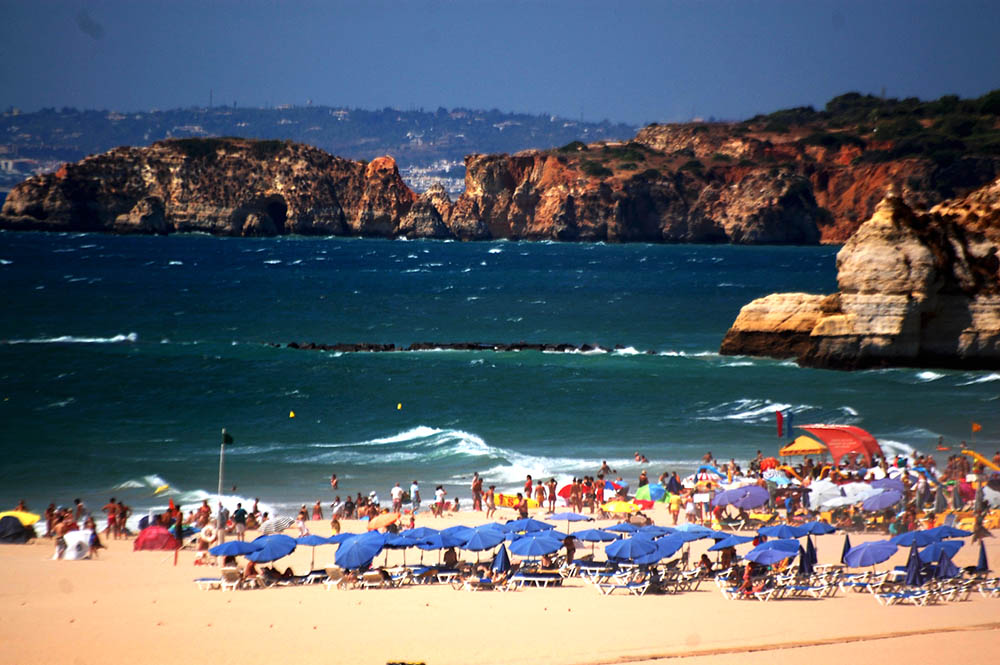Could it be that in this time, of information and knowledge, where everything is supposed to be intelligent, from mobile phones to public policies, is it still possible for a territory to stupidly specialize in a certain economic activity?
The question is rhetorical because we all know it is. There are probably multiple ways to do this. Let's retain four for this short reflection.
A first form of stupid specialization is well known to the Algarve reader. It is about concentrating the economy around a highly seasonal sector, dominated by precarious and low-skilled forms of employment, little interconnected with other economic activities, where the vast majority of strategic decisions and the great beneficiaries are from outside the region.
In this case, we are thinking about tourism – particularly in its less sophisticated forms – but any bet on a sector with these characteristics can be considered a stupid specialization.
A second is the concentration of resources on an activity that is based on a technology or raw material that is obsolete or should become obsolete.
This is the case for oil and other fossil fuels. Given the very negative impact they have on the environment, investment in these technologies represents a high opportunity cost and an uncertain cost-benefit ratio, compared to other green technologies that will have a future (and by now, the planet too).
A third form of stupid specialization is copying others without criteria, because they seem to us to be successful. Investing in ICT, nanotechnologies, biotechnologies or other cutting edge domains just because they are in fashion and it was good for other regions. Without guaranteeing critical mass or basic resources such as people, organizations and infrastructure.
A fourth way to stupidly specialize a territory is to strategically bet on an activity just because it was a successful bet of the region in the past.
In a highly changing context, it is easy to see that this option results essentially from path dependencies possibly inefficient for regional development.
It should be noted, although stupid, these forms of specialization also have – like everything else in life – positive aspects, particularly evident when the activity in question benefits from a favorable international context, which stimulates their demand.
They still have economic potential and create jobs. But they are stupid because there are better alternatives.
Is it then possible for territories to specialize intelligently? The European Union believes that they are and that it is even desirable that they do so in order to increase the effectiveness of the ESI Funds – European Structural and Investment Funds.
Between 2014-2020, RIS3 – Smart Specialization Strategies were not only important in the self-discovery process of each region to direct the resources made available by operational programs, but also a criterion ex-ante mandatory access to the ESIF.
To be successful in their RIS3, it is essential that regions are able to define a vision of the desirable future, select priorities, implement appropriate actions.
In Portugal, both at the national level, the ENEI, and at the regional level, the EREIs, until now were essentially for “English to see” and to fulfill the criteria of access to the FEEI created by Brussels.
The main part of the strategies is yet to be implemented: the projects identified as strategic, the shared governance model, monitoring.
The Algarve has been no exception. Despite having presented a document in 2014-2020, with a set of ideas that achieved some regional consensus, the effective operationalization takes a long time to get off the ground.
The implementation of measures linked to RIS3-Algarve does not seem to be able to break path dependencies to make the change that the region needs in sectorial terms. There is a lack of innovation actors in the ecosystem. Regional specialization remains essentially stupid.
However, RIS3 will once again be a structuring piece of European Regional Policy in the post-2020 period. May Portuguese regions take better advantage of RIS3 to specialize in an intelligent way.
Author Hugo Pinto
Researcher and Co-coordinator of NECES – Center for Studies in Economics, Science and Society of the Center for Social Studies, University of Coimbra; European Commission specialist on the subject of Smart Specialization and member of the team that prepared RIS3-Algarve
*The content of this article does not necessarily reflect the position of the Center for Social Studies or the European Commission. The opinion expressed is the sole responsibility of the author.


















Comments